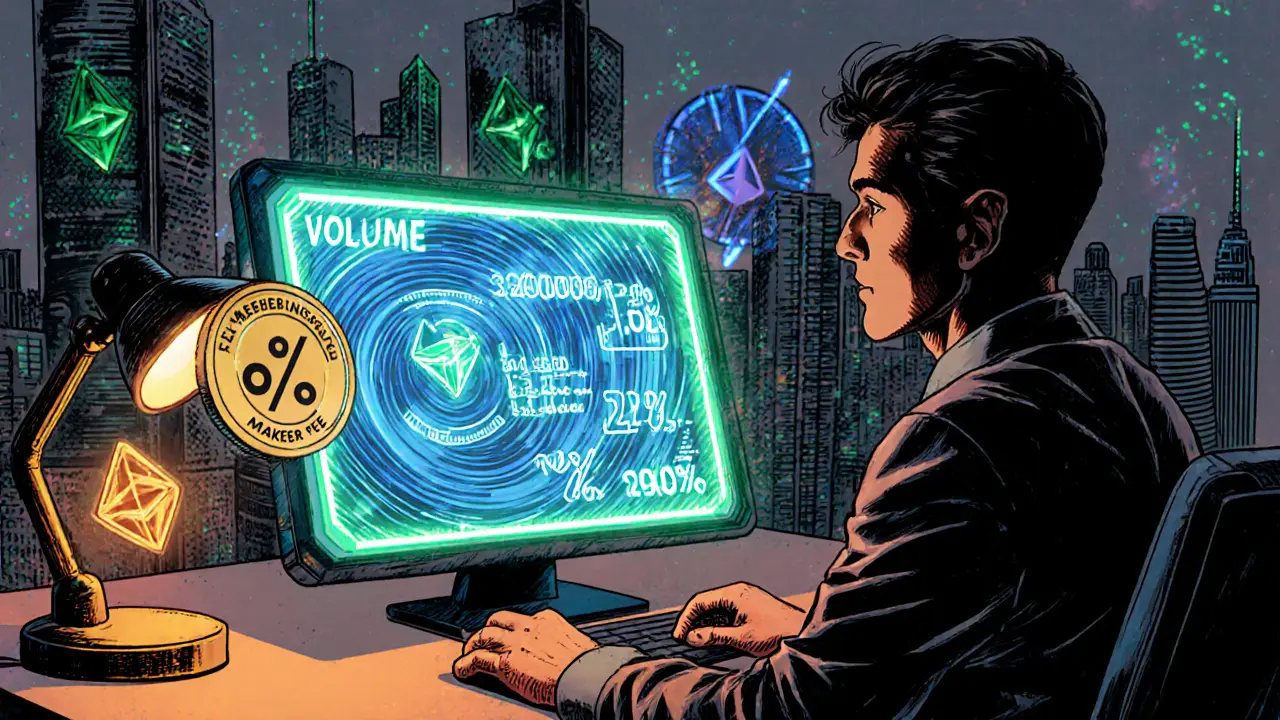Loopring Exchange Review 2025: Fees, Tech, and User Experience
A 2025 review of Loopring Exchange covering fees, zkRollup tech, security, pros, cons, and user experience for crypto traders.
Read MoreWhen working with zkRollup DEX, a decentralized exchange that uses zero‑knowledge rollups to batch transactions off‑chain while keeping data private and provably correct. Also known as zero‑knowledge rollup exchange, it delivers near‑instant trade finality and low fees without sacrificing security.
These platforms often sit on modular blockchains, architectures that separate data availability from consensus such as Celestia, a dedicated data‑availability layer built for rollups. zkRollup DEX encompasses three core ideas: zero‑knowledge proofs, rollup aggregation, and off‑chain data handling. It requires a data‑availability solution, because without reliable availability the rollup cannot publish transaction data for verification.
Zero‑knowledge proofs provide the privacy piece. A prover creates a succinct proof that a batch of trades follows the exchange’s rules, and the verifier checks the proof without seeing the raw data. This proof‑generation step influences the overall throughput: faster provers mean more trades per second. At the same time, the rollup’s aggregator compresses many trades into a single on‑chain batch, which reduces gas costs dramatically.
Data availability is where modular blockchains shine. Traditional monolithic chains store every transaction in the same block, which can become a bottleneck. In a modular design, the consensus layer only cares about finality, while a separate data‑availability layer (like Celestia) guarantees that the compressed rollup data can be retrieved by anyone who needs it. This split enables zkRollup DEXs to scale without compromising security.
Security in a zkRollup DEX comes from two fronts. First, the underlying consensus (often Ethereum or a similar L1) enforces finality and protects against final‑state attacks. Second, the zero‑knowledge proof itself is mathematically sound; if the proof verifies, the trades are guaranteed to be valid. Because the data‑availability layer is permissionless, anyone can challenge missing or corrupted data, adding an extra safeguard.
From a user’s perspective, the experience feels like trading on a classic centralized exchange: orders are placed instantly, slippage is low, and fees are a fraction of what you’d pay on an L1 DEX. The main difference is that users keep custody of their assets and never expose trade details to a third party. This aligns with the broader DeFi ethos of ownership and transparency.
Developers building a zkRollup DEX need to consider tooling. Popular proof systems include PLONK, Groth16, and Halo2, each with trade‑offs in proving time and circuit size. On the rollup side, frameworks like StarkEx, zkSync, and zkPorter provide ready‑made aggregation logic. Integrating with a modular data‑availability layer often involves submitting a commitment hash to the DA chain and storing the raw batch off‑chain, ready for anyone to fetch.
Regulatory considerations are also part of the picture. Because zkRollup DEXs keep transaction data private, they can help operators comply with data‑privacy regulations while still providing auditable proofs of compliance. However, the same privacy can raise concerns for AML/KYC requirements, so many projects adopt optional identity‑verification layers that reveal only what regulators need.
Looking ahead, the ecosystem is moving toward hybrid solutions that mix zkRollups with optimistic rollups, giving users a choice between absolute privacy and faster finality. As modular blockchains mature, data‑availability costs will drop, making zkRollup DEXs even more attractive for high‑frequency traders and casual users alike.
The collection below pulls together guides, deep‑dives, and practical tips that cover everything from the math behind zero‑knowledge proofs to step‑by‑step deployment on a modular blockchain. Whether you’re a developer, trader, or just curious about the next wave of DeFi scaling, the articles ahead will give you the context and tools you need to navigate zkRollup DEXs with confidence.

A 2025 review of Loopring Exchange covering fees, zkRollup tech, security, pros, cons, and user experience for crypto traders.
Read More